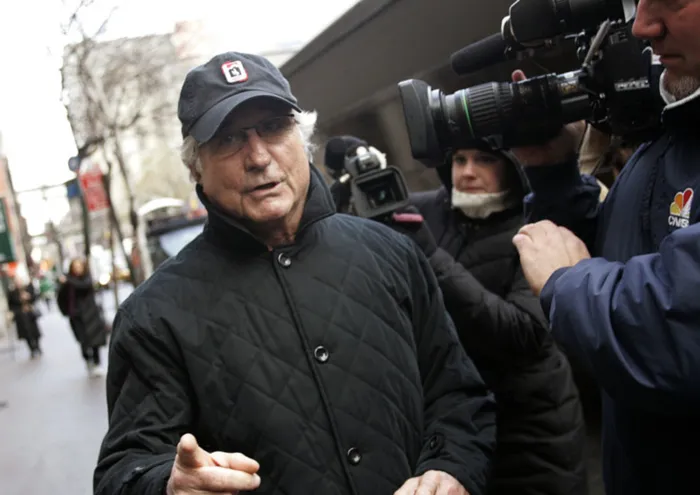HSBC profit drops as bank takes Madoff legal hit

Bernard Madoff walks back to his apartment in New York in this December 17, 2008 file photo.
Image: File
HSBC reported falling quarterly profits Tuesday, with the banking giant's bottom line weighed down by legal provisions related to the late Bernard Madoff's huge investment fraud.
The London-headquartered lender revealed the $1 billion-plus fallout Monday amid a Luxembourg lawsuit dating back to 2009, when Madoff was sentenced to 150 years in prison for running a pyramid-style scheme.
HSBC's chief executive Georges Elhedery praised the Asia-focused group's underlying performance during the third quarter "despite taking legal provisions related to historical matters", he said in the earnings statement.
Revenue rose 5 percent to $17.8 billion on higher customer activity, HSBC said.
But net profit slid 21 percent to $4.87 billion in the July-September period compared with the third quarter of 2024.
Pre-tax profit was also down, falling 14 percent to $7.3 billion.
The falls reflected an increase in operating expenses and included legal provisions of $1.4 billion.
Of those, $1.1bn was recognised in connection with the fraud case of Madoff, while $300 million was related to "certain historical trading activities" under investigation by the French National Financial Prosecutor.
The bank noted that the global economy showed resilience and continued to grow despite unpredictable US trade policies and increased fiscal concerns.
Shares gain
Shares in HSBC gained almost 3 percent in London morning trade following the results. Its Hong Kong shares closed up 4.4 percent.
"Strip out the hefty $1.1 billion Madoff-related provision and other one-offs, and profit before tax rose... to $9.1 billion -- a good clip ahead of expectations," noted Matt Britzman, senior equity analyst at Hargreaves Lansdown.
He explained that the bank acted as a service provider to funds that invested with Madoff.
New Yorker Madoff conned tens of thousands of people around the world by running a shell pyramid, or Ponzi, scheme - where new clients' capital was stolen to pay off existing clients and create the illusion of returns, until it collapsed.
His fraud was revealed during the financial crisis in 2008 when he was unable to satisfy growing client demands to withdraw their investments, and many lost their savings or were unable to retire.
Chinese challenges
HSBC added Tuesday that commercial real estate conditions remain challenging in China, adding that government stimulus has yet to trigger a material improvement in buyer sentiment.
Net interest income increased by $1.1bn, or 15 percent, with reported expected credit losses of $1bn stable compared with the third-quarter of 2024.
The lender said it is expecting net interest income of $43bn or higher in 2025, reflecting increased confidence for policy rates in key markets, including in Hong Kong and Britain.
In Hong Kong, weak demand and over-supply of nonresidential properties continued to put downward pressure on rental and capital values, despite an observed improvement in local sentiment, it said.
Earlier this month, HSBC proposed a $14bn buyout to privatise Hang Seng Bank in the finance hub.
"What you should read from the Hang Seng deal is HSBC is open to growth," HSBC chief financial officer Pam Kaur told a conference call Tuesday.
"We want to invest for growth where we feel that we have a competitive advantage, we understand the market well, we understand also Hang Seng well, and therefore, from that perspective, it is very compelling."
Should the Hang Seng buyout win approval, it will become a wholly-owned subsidiary of HSBC and delist from the Hong Kong stock exchange.
HSBC was founded in Hong Kong and Shanghai in 1865 - but has been based in Britain since 1993.
AFP